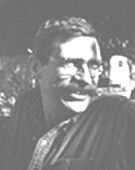There are no products listed under this category.
Childs, Barney

Barney Childs was born in Spokane in 1926. He was a Rhodes Scholar at Oxford University, and received a Ph.D. in English and music from Stanford University. Childs was largely self-taught in music until the early 1950s, when he studied at Tanglewood with Carlos Chavez and Aaron Copland and in New York with Elliott Carter. By the late '50s, his works were performed regularly in New York and elsewhere throughout the U.S. He won the Koussevitzky Award at Tanglewood in 1954 and had many MacDowell residencies. Childs taught English at University of Arizona from 1956 to 1965, when he became dean of Deep Springs College in California. From 1969 to 1971, he was composer-in-residence at Wisconsin College Conservatory in Milwaukee. In 1971, he began teaching literature and music at the University of Redlands, becoming a full professor in 1973 and a faculty researcher and lecturer in 1979.
Childs was poetry editor of the journal “Genesis West” (1962-65) and an editor of “Perspectives of New Music.” He wrote many scholarly articles concerning his musical and aesthetic views, and with collaborated with composer Elliott Schwartz to edit the book “Contemporary Composers on Contemporary Music.” From 1964 through 1982, Childs ran Advance Recordings, a record company that championed the music of avant-garde composers. Childs’ compositions drew inspiration from many sources, from traditional concert music to the aleatory works of John Cage, and jazz. He was particularly noted for innovative and influential scores (such as TAKE FIVE for any five instruments) that invite performers to collaborate on the realization of the works, and in which indeterminacy and improvisation play a great role. His compositions include traditional types of works such as symphonies and concertos, chamber pieces for unusual groupings of instruments, and many solo works (often written specifically for renowned new music virtuosi such as bassist Bertram Turetzky). Barney Childs died in February 2000.
